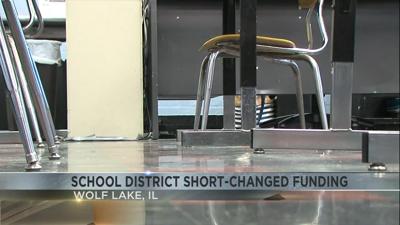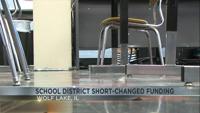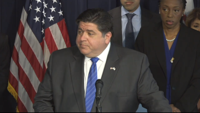WOLF LAKE, IL (WSIL) � A school district in southern Illinois is asking the state for some financial help and this isn't the first time a company nearby refuses to pay its property taxes, for the second year in a row.
“This is unfortunately not the first time they have failed to pay their taxes. They put us in this same boat last year,� said Shawnee District #84 superintendent Shelly Clover-Hill.
The issue is on Grand Tower Power Plant once again not paying its property taxes and that lack of funding affects everything the school does to educate students.
“It will impact everything,� said Clover-Hill. “It will impact staff, it will impact students, teachers, teacher's aides, transportation, and meals. The board will be forced to look at everything.�
The district depends on the property tax contribution from Grand Tower Power Plant to keep operations afloat. According to Clover-Hill, the plant’s contribution is significant.
“The impact is huge,� said Clover-Hill. “They pay almost 50 percent of the property taxes for our school district.�
That money makes up almost half of Shawnee’s operational budget and the thought of making more cuts is unsettling to Clover-Hill.
“We kind of anticipated that it might happen again,� said Clover-Hill. “Hoping that it wouldn't but here we are.�
Tiffany Schultz is the president of the local teacher’s union. Not only that, she’s also a special ed teacher.
If the district has to make more cuts due to the lack of funding, she believes it will be disastrous to a staff already stretched thin.
“As a teacher, there’s always that worry about, if there’s not the funding, is the building going to close down? Then what’s going to happen to my students,� said Schultz.
Schultz just wrapped up her 15th year teaching at Shawnee and she says the teachers are always worried about what would happen to the students so more cuts are needed.
“I'm here to help the kids and just because we're not a larger district doesn't mean our kids don't deserve to get the same education as those in a larger district,� said Schultz, “and without those fundings, a lot of times we can't give them the same opportunities as the larger districts.�














